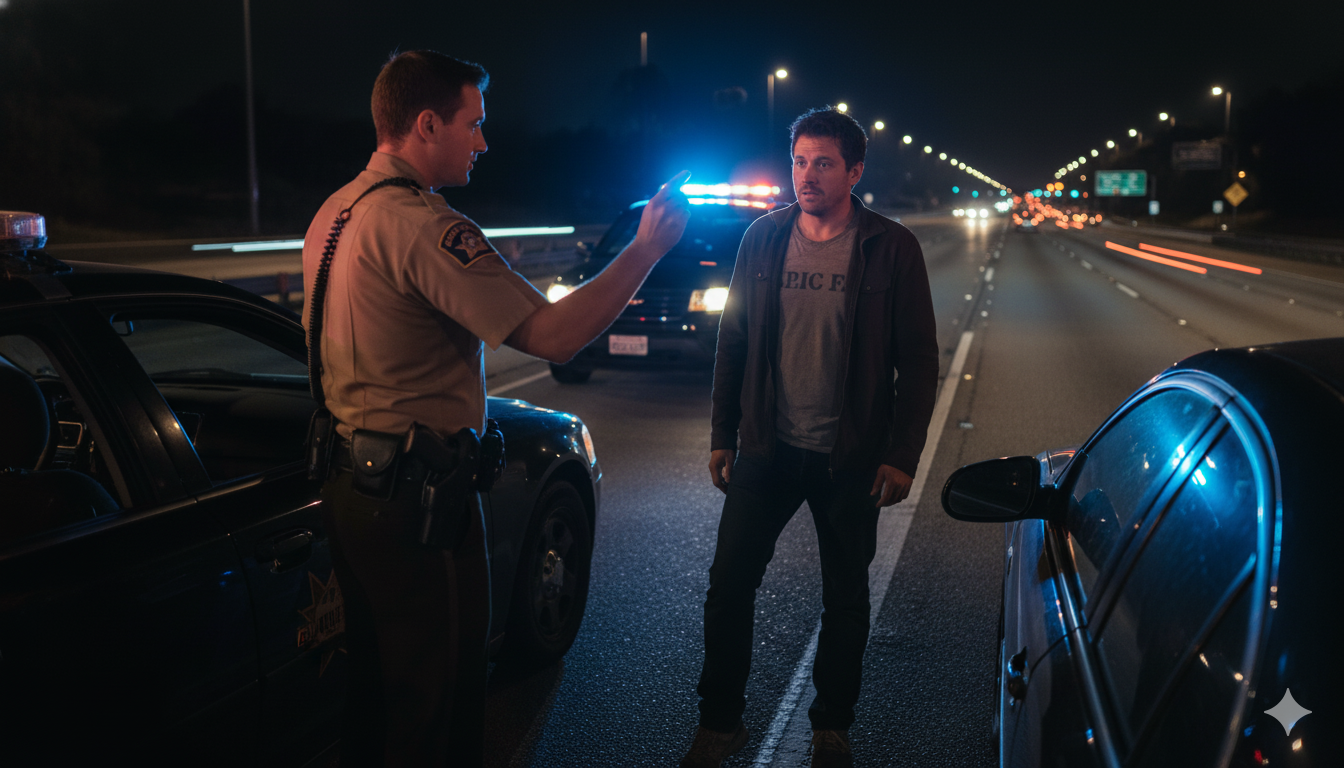Being served with a restraining order in Lompoc can feel like your rights and reputation are being destroyed—but you’re not alone, and you have options. Whether you’re dealing with domestic violence restraining orders (DVRO) filed by spouses or partners, civil harassment restraining orders from neighbors or acquaintances, workplace violence restraining orders threatening your employment at Vandenberg Space Force Base, elder abuse restraining orders, gun violence restraining orders seeking to confiscate your firearms, violations of existing restraining orders resulting in criminal charges, false allegations used as weapons in custody battles or contentious divorces, or need to obtain restraining orders protecting yourself or family members from abuse, understanding California’s restraining order system is the first step toward protecting your freedom, your reputation, your custody rights, and your ability to work at Vandenberg and live in Lompoc’s close-knit community where restraining orders can permanently damage reputations and destroy careers if not defended aggressively.
At Central Coast Criminal Defense, we’ve helped Lompoc residents defend against restraining orders and obtain protective orders since 2010. We know the Santa Barbara County courts, the judges at Lompoc Superior Court on North H Street who hear restraining order matters, the family law dynamics affecting custody and visitation disputes, and—most importantly—we know how to fight for results that protect what matters most: defeating false or exaggerated restraining order requests through compelling evidence and testimony, preventing restraining orders that would destroy your employment at Vandenberg Space Force Base requiring clean records, protecting your custody and visitation rights with children when restraining orders are weaponized in family court, defending against restraining order violation charges, and preserving your reputation in Lompoc’s close-knit community where restraining orders create social stigma and professional consequences even when allegations are false or greatly exaggerated by petitioners seeking tactical advantages in divorces or disputes.
What Are Restraining Orders in California?
Restraining orders (also called protective orders) are court orders prohibiting individuals from specific conduct toward protected parties including no contact, staying away from residences and workplaces, and surrendering firearms. California has several types of restraining orders with different requirements and procedures: Domestic Violence Restraining Orders (DVRO) under Family Code 6200 protecting spouses, former spouses, cohabitants, dating partners, parents of shared children, and certain family members from abuse, Civil Harassment Restraining Orders under Code of Civil Procedure 527.6 protecting individuals from harassment, stalking, threats, or violence by neighbors, roommates, acquaintances, or strangers with no domestic relationship, Workplace Violence Restraining Orders under CCP 527.8 allowing employers to obtain orders protecting employees from violence or threats at workplaces, Elder or Dependent Adult Abuse Restraining Orders under Welfare and Institutions Code 15657.03 protecting individuals 65 or older or dependent adults from abuse, and Gun Violence Restraining Orders under Penal Code 18100 allowing family members or law enforcement to petition for firearm removal from individuals posing danger. Each type has different standards: DVROs require showing abuse including physical violence, threats, sexual abuse, harassment, stalking, destruction of property, or disturbing peace; civil harassment orders require showing harassment defined as unlawful violence, credible threats, or course of conduct seriously alarming or harassing with no legitimate purpose; workplace orders require showing violence or threats at work; elder abuse orders require showing physical abuse, neglect, financial abuse, or abandonment of elderly victims; and gun violence orders require showing danger to self or others justifying firearm removal.
In Lompoc and throughout Santa Barbara County, restraining orders are issued through two-stage process beginning with temporary restraining orders (TROs) granted ex parte (without respondent present) based solely on petitioner’s written declarations and lasting 15-21 days until hearing, followed by restraining order hearings at Lompoc Superior Court on North H Street where both parties present evidence and testimony with judges deciding whether to issue permanent restraining orders lasting up to five years. Common restraining order situations in Lompoc include domestic violence restraining orders filed by spouses or dating partners during divorces or separations claiming abuse to gain custody advantages, civil harassment orders filed by neighbors disputing property boundaries or noise complaints in Lompoc neighborhoods, workplace violence orders sought by Vandenberg Space Force Base or Federal Correctional Complex employers when employees make threats or engage in concerning behavior, restraining orders filed by ex-girlfriends or ex-boyfriends after relationship breakups claiming harassment from continued contact attempts, restraining orders used tactically in child custody disputes to portray other parent as dangerous limiting visitation rights, and false or exaggerated allegations by individuals seeking to remove respondents from shared Lompoc residences or gain leverage in legal disputes. The restraining order process involves petitioners filing requests with supporting declarations describing alleged abuse or harassment, judges reviewing petitions and issuing temporary restraining orders if allegations justify immediate protection, service of TROs on respondents by law enforcement or process servers, restraining order hearings where both sides present evidence, and final orders if judges find by preponderance of evidence that abuse or harassment occurred justifying continued protection.
What many people served with restraining orders in Lompoc don’t understand is that these orders carry devastating consequences beyond just no-contact requirements including prohibition from possessing firearms requiring immediate surrender of all guns to law enforcement or licensed dealers, loss of child custody and visitation rights when orders protect children, relocation from shared residences leaving defendants homeless in Lompoc’s tight housing market, employment termination from Vandenberg Space Force Base or Federal Correctional Complex when restraining orders appear on background checks or security clearance reviews, immigration consequences for non-citizens when restraining orders are considered crimes involving moral turpitude or domestic violence triggering deportation, criminal charges for violations when defendants violate stay-away or no-contact terms, public record of restraining orders appearing on background checks damaging employment prospects and reputation in Lompoc’s close-knit community, and tactical disadvantages in family court where restraining orders create presumptions against respondents in custody evaluations. Additionally, many restraining order petitions involve false allegations, greatly exaggerated claims where minor arguments or mutual disputes are characterized as abuse, retaliation for relationship breakups or rejection, tactical weapons in custody battles where parents manufacture abuse claims to gain sole custody, or situations where petitioners were aggressors or mutual combatants but file orders first portraying themselves as victims. Without aggressive representation that challenges false allegations through testimony and evidence, presents defense witnesses contradicting petitioner claims, cross-examines petitioners exposing inconsistencies and motivations, and demonstrates to judges that abuse or harassment didn’t occur or doesn’t justify restraining orders, you risk permanent orders that destroy custody rights, employment at Vandenberg, firearm rights, and reputation based on false or exaggerated allegations that should never result in court-issued restrictions on freedom and rights in Lompoc community.
- Legal Definition: Restraining orders are court orders prohibiting respondents from contacting protected parties, staying away from residences and workplaces, and possessing firearms, issued through two-stage process with temporary restraining orders (TROs) granted ex parte lasting 15-21 days followed by hearings at Lompoc Superior Court where judges issue permanent orders lasting up to five years if abuse, harassment, or threats proven by preponderance of evidence, with different types including DVROs for domestic relationships, civil harassment orders for non-domestic situations, workplace violence orders, elder abuse orders, and gun violence restraining orders.
- Why It’s Devastating: Restraining orders result in immediate firearm surrender and permanent prohibition from gun possession, loss of child custody and visitation rights when orders protect children, forced relocation from shared Lompoc residences, employment termination from Vandenberg Space Force Base and Federal Correctional Complex when orders appear on background checks, immigration consequences including deportation for non-citizens, criminal charges for violations, public records damaging employment prospects and reputation in Lompoc’s close-knit community, and tactical disadvantages in family court custody battles where orders create presumptions against respondents.
- Common Situations: Domestic violence restraining orders filed during divorces or separations by spouses claiming abuse to gain custody advantages in family court, civil harassment orders from neighbors disputing property or noise in Lompoc neighborhoods, workplace violence orders from Vandenberg Space Force Base or Federal Correctional Complex when employees make threats, orders filed by ex-partners after breakups claiming harassment from contact attempts, tactical use in custody disputes to portray other parent as dangerous, and false or exaggerated allegations seeking to remove respondents from shared residences or gain leverage in disputes.
Critical: If served with temporary restraining order, you have 15-21 days until hearing to prepare defense. Do not contact petitioner or violate TRO terms—violations result in criminal charges. Call +1 (805) 621-7181 immediately for emergency restraining order defense.
Restraining Order Matters We Handle in Lompoc
We defend clients against restraining orders and help petitioners obtain protective orders in Lompoc, Santa Barbara County, and surrounding areas. Here are the matters we handle:
Defending Against Domestic Violence Restraining Orders (DVRO)
- Spousal DVRO Defense
Defending against restraining orders filed by current or former spouses during divorces or separations | Strategy: Challenge false allegations, demonstrate mutual combat or self-defense, expose tactical motivations for custody advantages - Dating Partner DVRO Defense
Defending against orders filed by ex-girlfriends or ex-boyfriends claiming abuse after relationship breakups | Defense: Show relationship conflicts don’t constitute abuse, demonstrate petitioner exaggerates or fabricates allegations - Cohabitant DVRO Defense
Defending against orders filed by former cohabitants or roommates in Lompoc shared housing | Approach: Prove no qualifying domestic relationship, contest abuse allegations, show civil dispute not domestic violence - Parent of Child DVRO Defense
Defending against orders filed by other parent seeking custody advantages through abuse allegations | Critical: Protect custody and visitation rights, expose false allegations tactical weapon in family court
Defending Against Civil Harassment Restraining Orders
- Neighbor Dispute Orders
Defending against harassment orders filed by Lompoc neighbors disputing property boundaries, noise, or conflicts | Defense: Show no harassment occurred, demonstrate legitimate reasons for contact, prove petitioner is aggressor - Stalking Allegations
Defending against orders claiming stalking behavior or unwanted following | Strategy: Demonstrate innocent explanations for presence, challenge credibility of stalking claims, show no course of conduct - Online Harassment Claims
Defending against orders alleging cyber harassment, threatening messages, or social media abuse | Defense: Challenge attribution of messages, demonstrate free speech protections, show no credible threats - Acquaintance Disputes
Defending against orders filed by acquaintances, former friends, or community members after conflicts | Approach: Show isolated incidents don’t constitute harassment course of conduct, demonstrate context negates claims
Workplace Violence Restraining Orders
- Vandenberg Employment Orders
Defending against workplace violence orders sought by Vandenberg Space Force Base employers claiming threats or violence | Consequences: Immediate employment termination, security clearance loss, defend to preserve Vandenberg career - Federal Correctional Complex Orders
Defending against orders filed by Federal Correctional Complex Lompoc alleging employee threats | Strategy: Challenge workplace conduct characterizations, demonstrate miscommunications not threats, protect federal employment - Private Employer Orders
Defending against orders sought by Lompoc businesses claiming employee violence or threats | Defense: Contest employer allegations, demonstrate wrongful termination motivations, show no workplace violence
Elder and Dependent Adult Abuse Orders
- Elder Abuse Order Defense
Defending against orders alleging abuse, neglect, or financial exploitation of elderly family members | Defense: Challenge abuse allegations, demonstrate proper care provided, show family disputes not abuse - Financial Abuse Allegations
Defending against orders claiming improper handling of elderly relatives’ finances or assets | Strategy: Document proper financial management, demonstrate authorization for transactions, challenge exploitation claims
Gun Violence Restraining Orders (GVRO)
- GVRO Defense
Defending against gun violence restraining orders seeking firearm confiscation based on danger allegations | Critical: Immediate firearm surrender required, challenge danger claims, demonstrate no threat to self or others - Law Enforcement GVRO
Defending against orders filed by police claiming individuals pose danger justifying firearm removal | Defense: Contest law enforcement characterizations, challenge evidence of dangerousness, protect Second Amendment rights - Family Member GVRO
Defending against orders filed by family members seeking firearm confiscation | Strategy: Demonstrate family conflicts not danger, challenge petitioner motivations, restore firearm rights
Restraining Order Violation Defense
- Criminal Violation Charges (PC 273.6)
Defending against criminal charges for violating restraining order terms including no-contact or stay-away provisions | Penalties: Up to 1 year jail for misdemeanor, 3 years prison for felony with priors, aggressive defense essential - Accidental Contact Violations
Defending violations where contact was unintentional, unavoidable, or initiated by protected party | Defense: Demonstrate lack of willful violation, show protected party initiated contact, prove innocent encounter - Technical Violations
Defending minor or technical violations of restraining order terms | Strategy: Minimize severity, demonstrate no danger to protected party, negotiate reduced charges or dismissals - False Violation Allegations
Defending against fabricated violation claims by protected parties seeking additional leverage | Defense: Challenge credibility, demonstrate alibi, prove violations didn’t occur through evidence and witnesses
Modifications and Terminations
- Restraining Order Modifications
Petitioning to modify restraining order terms to allow child visitation, workplace proximity, or other necessary contact | Process: Demonstrate changed circumstances, show modification serves children’s best interests, negotiate with petitioners - Early Termination of Orders
Seeking dismissal of restraining orders before expiration when no longer necessary | Strategy: Show no ongoing danger, demonstrate rehabilitation or changed circumstances, obtain petitioner agreement - Firearm Rights Restoration
Petitioning to restore firearm rights after restraining orders expire or are dismissed | Relief: File petitions demonstrating no danger, challenge continuing firearm prohibitions, restore Second Amendment rights
Obtaining Restraining Orders for Clients
- Domestic Violence Protection
Obtaining DVROs protecting clients and children from abusive spouses or partners in Lompoc | Process: Document abuse, file comprehensive petitions, present compelling testimony at hearings, secure protective orders - Stalking Protection
Obtaining civil harassment orders protecting clients from stalkers, harassers, or threatening individuals | Strategy: Document harassment course of conduct, demonstrate credible threats, obtain stay-away orders - Workplace Protection
Assisting Vandenberg or Lompoc employer clients in obtaining workplace violence orders protecting employees | Approach: Document workplace threats or violence, demonstrate danger to employees, secure protective orders
Served with restraining order in Lompoc? You have 15-21 days to prepare defense before hearing. False allegations can destroy custody rights and Vandenberg employment. Call +1 (805) 621-7181 immediately for emergency restraining order defense.
What’s at Stake: Consequences of Restraining Orders
Restraining orders don’t just require staying away—they destroy your rights, your custody, and your reputation permanently. Here’s what you could be facing:
Immediate Rights Loss
- Immediate firearm surrender and permanent prohibition from gun possession for five years minimum
- Loss of child custody and supervised visitation only when orders protect children
- Forced relocation from shared Lompoc residences leaving respondents homeless
- Prohibition from contact with children, family members, or shared social circles
- Stay-away orders from workplaces, schools, children’s activities preventing normal life
- Criminal charges for any violations of restraining order terms
Career and Reputation Destruction
- Employment termination from Vandenberg Space Force Base when orders appear on security clearance reviews
- Loss of federal employment at Federal Correctional Complex Lompoc
- Professional license consequences for healthcare, education, law enforcement careers
- Public records appearing on background checks damaging employment prospects
- Immigration consequences including deportation for non-citizens with domestic violence orders
- Social stigma in Lompoc’s close-knit community branding respondents as abusers
- Permanent tactical disadvantages in family court custody battles
⚠️ Your custody rights, Vandenberg employment, and firearms are at stake immediately. Restraining order hearings occur in 15-21 days. Call now for emergency restraining order defense before permanent orders issue.
Why Hiring an Attorney for Restraining Orders Is Essential
Exposing False Allegations Through Cross-Examination
Many restraining order petitions filed in Lompoc involve false allegations, greatly exaggerated claims, or tactical misuse of protective order system to gain advantages in custody battles, divorces, or personal disputes—and aggressive cross-examination at restraining order hearings exposes these false claims preventing unjust permanent orders. We challenge false allegations by conducting thorough cross-examination of petitioners at Lompoc Superior Court hearings exposing inconsistencies between written declarations and testimony, questioning petitioners about motivations including pending custody disputes, divorces, or property conflicts that explain tactical filing of restraining orders, demonstrating through questioning that alleged abuse incidents never occurred or were mutual conflicts not one-sided abuse, revealing petitioner was aggressor or instigator while portraying self as victim, challenging credibility when petitioners embellish or fabricate allegations under oath, and exposing lack of corroborating evidence when abuse claims aren’t supported by police reports, medical records, photographs, or witness testimony. At restraining order hearings, judges base decisions on credibility assessments after hearing both parties testify—and without skilled cross-examination exposing false allegations, contradictions, and tactical motivations, petitioners’ one-sided stories in declarations are accepted as truth resulting in permanent orders based on fabricated or exaggerated abuse claims that should never justify court-imposed restrictions on freedom, custody rights, and Second Amendment rights in Lompoc community.
Protecting Child Custody and Visitation Rights
Domestic violence restraining orders that protect children result in immediate loss of custody and supervised visitation only for respondents—making restraining order defense critical to protecting parental rights when orders are used as tactical weapons in custody disputes. We protect custody rights by demonstrating to judges at restraining order hearings that abuse allegations are false or exaggerated attempts to gain sole custody advantages, presenting evidence that respondents are loving, non-abusive parents with strong bonds to children, challenging inclusion of children as protected parties when no abuse toward children occurred or is alleged, arguing that supervised visitation is unnecessary when no danger to children exists, negotiating restraining order terms allowing continued parenting time and co-parenting communication about children, and coordinating restraining order defense with family court custody proceedings to prevent tactical abuse of protective order system. When restraining orders protect children, family court judges in custody cases are heavily influenced by existence of orders creating presumptions that respondents are dangerous parents unsuitable for custody—but successfully defending against restraining orders at initial hearings prevents these presumptions from arising and preserves equal custody rights. Many parents facing restraining orders in Lompoc are falsely accused by other parents seeking to monopolize custody and eliminate co-parenting, and without aggressive representation exposing these false allegations and protecting custody rights, respondents lose meaningful relationships with children based on fabricated abuse claims used as tactical weapons in family court battles.
Preserving Vandenberg Security Clearances and Federal Employment
Restraining orders, particularly domestic violence restraining orders, appear on background checks and security clearance reviews resulting in immediate termination from Vandenberg Space Force Base contractor and civilian positions, loss of security clearances, and disqualification from federal employment at Federal Correctional Complex Lompoc. We protect Vandenberg and federal employment by fighting aggressively at restraining order hearings to prevent issuance of permanent orders that would appear on background checks, demonstrating to employers and security clearance adjudicators that temporary restraining orders are based on false allegations being contested at hearings, securing dismissals of restraining order petitions through compelling defense preventing any orders from issuing, negotiating civil harassment orders rather than domestic violence orders when possible because civil orders have less severe employment consequences, and presenting evidence to Department of Defense or federal employers that restraining order allegations are false and being vigorously defended. For Lompoc residents working at Vandenberg Space Force Base where security clearances require demonstrating trustworthiness and sound judgment, or Federal Correctional Complex where federal employment is contingent on clean backgrounds, restraining orders—even if based on false allegations—can result in immediate termination and loss of livelihoods supporting families. Without aggressive representation defeating restraining orders or minimizing their severity, these employment consequences occur regardless of whether allegations are true, destroying careers and economic stability in community where Vandenberg and federal employment opportunities are primary sources of quality jobs and benefits for thousands of families.
Local Experience at Lompoc Superior Court Makes Difference
Restraining order hearings at Lompoc Superior Court on North H Street require understanding which judges are skeptical of false allegations versus those who routinely grant orders based on petitioners’ claims, how to effectively cross-examine petitioners exposing tactical motivations and inconsistencies, what evidence judges find persuasive in determining whether abuse or harassment occurred, and how to present defense testimony and witnesses credibly. We’ve defended hundreds of restraining order hearings at Lompoc Superior Court, know the judges who handle these matters and their approaches to evaluating credibility and evidence, understand effective cross-examination techniques that expose false allegations without appearing aggressive or unsympathetic, can prepare compelling respondent testimony presenting defenses clearly and credibly, and know how to present evidence including text messages, emails, witnesses, and police reports contradicting petitioner claims. We also understand restraining order dynamics in Lompoc including tactical use in custody disputes where parents file orders to gain advantages in family court, neighbor conflicts arising from property disputes in Lompoc neighborhoods, and domestic violence allegations in relationships where mutual combat or self-defense occurred but one party files order first portraying other as sole aggressor. Understanding these local dynamics and how to effectively present defenses at Lompoc Superior Court makes difference between permanent restraining orders destroying custody, employment, and reputation versus successful defense defeating false allegations and preserving rights in close-knit community.
How Central Coast Criminal Defense Fights Restraining Orders
Since 2010, we’ve defended Lompoc residents against restraining orders with a proven approach:
- Immediate Case Assessment and Response
We immediately review temporary restraining order documents and petitioner’s declarations identifying false allegations, exaggerations, and inconsistencies, assess tactical motivations including pending custody disputes, divorces, or conflicts explaining why orders were filed, identify defense strategies including challenging abuse claims, demonstrating mutual combat or self-defense, or exposing petitioner as aggressor, determine urgent issues including child custody impacts, firearm surrender requirements, and employment consequences at Vandenberg Space Force Base, and prepare comprehensive response strategies for restraining order hearings within 15-21 day timeframe. - Evidence Gathering
We obtain all evidence supporting defense including text messages, emails, and communications between parties contradicting abuse allegations, police reports showing mutual combat, respondent as victim, or no arrests despite petitioner claims, medical records when petitioner claims injuries that don’t exist or occurred differently, witness statements from family, friends, neighbors, or coworkers contradicting petitioner’s abuse claims, photographs or videos disproving petitioner allegations or showing respondent injuries when self-defense occurred, social media posts by petitioner contradicting claims of fear or abuse, and documentary evidence exposing tactical timing of restraining order filings coordinated with custody or divorce proceedings. - Preparing Respondent Testimony
We prepare respondents to testify effectively at Lompoc Superior Court hearings explaining what actually happened during alleged incidents demonstrating no abuse occurred, presenting respondent’s version of events credibly and calmly without appearing angry or aggressive, addressing each allegation in petitioner’s declaration with specific factual rebuttals, demonstrating through testimony that conflicts were mutual or respondent acted in self-defense, explaining context of relationship and petitioner’s motivations for filing false allegations, and presenting respondent as credible, non-threatening individual who doesn’t pose danger to petitioner. - Cross-Examination of Petitioner
We conduct aggressive cross-examination at restraining order hearings exposing inconsistencies between petitioner’s written declarations and testimony, questioning petitioner about tactical motivations including custody disputes, property conflicts, or revenge for relationship breakup, demonstrating through questioning that alleged abuse incidents never occurred or were greatly exaggerated, revealing petitioner initiated conflicts, was aggressor, or engaged in mutual combat not one-sided abuse, challenging lack of corroborating evidence when serious abuse allegations aren’t supported by police reports, medical records, or witnesses, and damaging petitioner credibility through exposure of false statements or exaggerations under oath. - Presenting Defense Witnesses
We present witnesses at hearings contradicting petitioner allegations including family members, friends, or neighbors who witnessed alleged incidents testifying no abuse occurred or petitioner was aggressor, coworkers or employers from Vandenberg Space Force Base or Lompoc businesses vouching for respondent’s character and non-violent nature, children (when appropriate) describing non-abusive relationship with respondent parent, expert witnesses including psychologists or domestic violence experts when necessary explaining mutual combat dynamics or false allegations in custody disputes, and character witnesses testifying about respondent’s reputation for peacefulness and non-violence in Lompoc community. - Legal Arguments
We present comprehensive legal arguments to judges at Lompoc Superior Court explaining why restraining orders should not issue including arguing petitioner hasn’t met burden of proof by preponderance of evidence that abuse or harassment occurred, demonstrating alleged conduct doesn’t meet legal definitions of abuse, harassment, stalking, or threats under California law, arguing restraining orders are tactical weapons in custody or divorce disputes not legitimate protection from abuse, showing First Amendment protections when allegations involve protected speech not true threats, presenting self-defense or necessity justifications for respondent’s conduct, and arguing less restrictive alternatives like mutual stay-away orders more appropriate than one-sided restraining orders. - Negotiating Dismissals or Favorable Terms
We negotiate with petitioners and their attorneys before or during hearings to secure voluntary dismissals of restraining order petitions when petitioners recognize allegations won’t be proven or were exaggerated, mutual stay-away agreements where both parties agree to avoid contact rather than one-sided restraining orders creating tactical advantages, modifications of temporary restraining order terms allowing child visitation, workplace proximity at Vandenberg, or necessary communications, and stipulated orders with specific limited terms less restrictive than blanket restraining orders petitioners originally sought. - Protecting Custody Rights
When restraining orders threaten child custody we coordinate restraining order defense with family court custody proceedings ensuring consistent strategies across cases, challenge inclusion of children as protected parties when no abuse toward children occurred, argue for continued parenting time and co-parenting communication about children, demonstrate respondent is loving non-abusive parent deserving equal custody, and prevent restraining orders from creating presumptions against respondent in custody evaluations and family court decisions. - Vandenberg and Federal Employment Protection
For clients working at Vandenberg Space Force Base or Federal Correctional Complex we fight aggressively to prevent restraining orders that would appear on background checks and security clearance reviews, communicate with employers explaining temporary orders are based on false allegations being contested, secure dismissals preventing any permanent orders from issuing and appearing on employment records, present evidence to security clearance adjudicators that allegations are false and vigorously defended, and minimize employment consequences by negotiating civil harassment orders rather than domestic violence orders when possible because they have less severe impact on security clearances and federal employment.
Our Lompoc restraining order defense practice is built on successfully defeating false allegations at hearings. We’ve secured complete dismissals of restraining order petitions by exposing false allegations through cross-examination and compelling defense evidence, prevented domestic violence restraining orders by demonstrating mutual combat or self-defense rather than one-sided abuse, protected child custody and visitation rights by excluding children from restraining orders or negotiating parenting time provisions, preserved Vandenberg Space Force Base employment by defeating orders that would have appeared on security clearance reviews, negotiated mutual stay-away agreements or limited restraining orders instead of blanket prohibitions petitioners sought, defended successfully against restraining order violations by demonstrating accidental contact or false allegations, obtained modifications allowing workplace proximity at Vandenberg or necessary communications about children, and helped countless Lompoc residents defeat false or exaggerated restraining order allegations that would have destroyed custody rights, employment at Vandenberg and Federal Correctional Complex, firearm rights, and reputations in close-knit community. We understand that restraining orders are frequently misused as tactical weapons in custody disputes, divorce proceedings, and personal conflicts where petitioners seek advantages by portraying opponents as dangerous abusers—and we fight aggressively through cross-examination, defense testimony, and evidence to expose these false allegations, protect respondents’ rights, and prevent unjust restraining orders from issuing based on fabricated or exaggerated claims that don’t justify court-imposed restrictions on freedom, parental rights, and Second Amendment rights in Lompoc community where false allegations can permanently damage reputations and destroy lives if not defended properly with compelling evidence and aggressive advocacy.
When false restraining order allegations threaten your custody, your Vandenberg employment, and your reputation, you need more than just legal representation—you need an advocate who knows Lompoc Superior Court and fights aggressively through cross-examination. That’s exactly what you get with Central Coast Criminal Defense.
Get Your Free Consultation Today
Don’t wait if served with restraining order. You have only 15-21 days until hearing to prepare defense. False allegations can destroy custody rights, Vandenberg employment, and firearms. Call now for immediate restraining order defense consultation.












